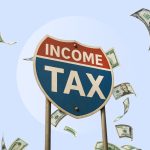Imagine opening your mailbox and finding a hefty property tax bill for a home you don’t legally own. It’s more common than you think. From inherited homes stuck in probate to rental properties gone wrong, many Americans—especially older adults—are discovering they’re on the hook for taxes they never expected.
In the eyes of tax authorities, ownership isn’t always about what your name says on paper. If you’re living in a home, collecting rent from it, or maintaining it as if it’s yours, your local assessor might decide you’re liable—even if your name’s not on the deed. And in states with aggressive tax enforcement, ignorance of the rules can be financially devastating.
Understanding how and why you could be billed for property taxes on a home you don’t legally own is critical, especially in retirement, when fixed incomes and estate planning overlap. Here’s what you need to know before a surprise tax bill arrives with your name on it.
Why You Might Owe Property Taxes on a Home You Don’t Own
Occupying a Home Without Legal Title Can Still Trigger Tax Bills
Just because you’re not listed on the deed doesn’t mean you’re invisible to the tax assessor. If you’ve moved into a relative’s home (such as a parent’s or sibling’s) and assumed long-term responsibility—like paying utilities, fixing repairs, or claiming homestead benefits—you could be seen as the “de facto” owner.
Counties don’t always wait for a legal title transfer to assign responsibility. If tax bills keep getting paid from your account, or if you file paperwork that suggests ownership (like applying for exemptions), the system may automatically treat you as the taxpayer of record.
And if the actual deed holder has died or vanished into legal limbo, you could find yourself footing the bill simply because you’re the one still living there.
Probate Delays Leave Properties in Legal No-Man’s-Land
One of the most common ways people end up with surprise property tax obligations is through inheritance complications. When a parent or relative passes away and their estate isn’t quickly probated, the property may remain legally unclaimed, sometimes for years.
During that time, the counties continue billing someone. If no official heir steps forward or files the right documents, tax authorities may start targeting the occupant or next of kin. You might not technically own the house, but if the courts haven’t processed the will or transferred title, you’re still at risk of being held responsible for back taxes. Uncleared probate isn’t just a legal mess. It’s a financial trap for anyone left managing the property informally.
Rent-to-Own and Informal Housing Agreements Cause Confusion
Verbal or casual housing agreements are another gray area. Suppose you enter a rent-to-own agreement or make monthly payments to a family member for a house you intend to own eventually. Even if no formal contract is filed, the county may interpret your actions as homeownership.
This happens frequently in communities where property transactions occur off the books or within families. If you’re maintaining the home and the previous owner stops paying taxes or dies, you may suddenly find your name associated with the unpaid bill.
And in rent-to-own scenarios that fall apart, you could still be responsible for taxes, especially if you’ve already claimed residency or tax breaks.
Quitclaim Deeds Transfer Responsibility, Sometimes Without Warning
A quitclaim deed is a fast way to transfer a property title, often used within families. But it’s not always explained clearly, and recipients sometimes don’t realize the implications. If someone signs a property over to you via quitclaim, especially without a lawyer, you may suddenly be responsible for taxes, even if you weren’t involved in the original mortgage.
Worse, if the deed was recorded in your name without your full understanding (say, as a favor or out of pressure), you might be legally on the hook whether you intended to own the home or not.

Lenders and Mortgage Servicers Can Push Taxes Onto You
If you’re helping a friend or relative make mortgage payments, or if you’ve cosigned a loan that later defaults, the mortgage servicer may send property tax notices your way. This is especially common when escrow accounts are involved.
In some cases, servicers send bills to whoever’s actively paying, even if it’s not the legal owner. That can create confusion with tax authorities, who assume payment equals responsibility.
If the loan goes into foreclosure, and your name is anywhere in the paperwork, even as a backup or cosigner, you might receive demands from the county for unpaid property taxes. It’s a hidden hazard of trying to help someone else manage their real estate.
Homestead Exemption Errors Can Flag You for Audits
Many states offer homestead exemptions to reduce property taxes for primary residences. But if someone else claims the exemption while you’re living there, or if you mistakenly file for one on a home you don’t technically own, that can trigger audits and eventually tax assessments against you.
Some states audit homestead filings with software that flags multiple exemptions or conflicting names on utility bills and deeds. If your name comes up as the resident and benefits were claimed inappropriately, you may be asked to repay tax savings you never directly received. Even an innocent paperwork error can look like fraud in the eyes of local authorities.
What Happens If You Don’t Pay?
Failing to pay a property tax bill, even if you don’t believe you owe it, can have serious consequences. Counties can place a lien on the property, begin foreclosure proceedings, or garnish future tax refunds.
Even if you aren’t the legal owner, your personal credit or estate can be affected if your name is attached to the tax record. In some cases, you may be dragged into legal disputes or court hearings simply because you paid a bill, lived at the home, or were listed as a “responsible party.”
How to Protect Yourself from Surprise Property Tax Liability
To avoid being caught in the middle of a homeownership tangle, take these proactive steps:
- Verify title and deed records. Don’t assume. Check who legally owns any property you’re living in, paying for, or managing.
- Don’t make payments without documentation. If you’re paying taxes or utilities, get it in writing—especially if the ownership isn’t in your name.
- Handle probate quickly. If you inherit a home, get a lawyer and initiate probate. Letting the process linger invites tax problems.
- Be careful with informal arrangements. Rent-to-own and verbal deals can get you financially entangled without legal protection.
- Consult a real estate attorney. If you’re unsure about your tax liability or responsibilities, professional guidance is crucial.
When Ownership Is a Burden You Didn’t Ask For
Property taxes are one of the most unforgiving liabilities in real estate. They don’t care about your intent, your family drama, or whether a lawyer was involved. If the local government sees you as responsible, you may find yourself paying thousands for a house that’s not legally yours and never was.
The only way to avoid becoming a surprise taxpayer is to confront these ownership questions early. Don’t assume that living in a home or helping out a family member makes you immune to legal and financial consequences.
It happens more often than most people realize. Have you dealt with surprise property tax bills, probate confusion, or deed misunderstandings? Share your experience in the comments—your story might help someone else avoid the same trap.
Read More:
6 States With The Lowest Property Taxes
Why Long-Term Renters Are Facing Eviction Without Cause
Read the full article here
















